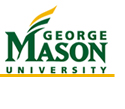


|
February 2006 We have moved to a new office location. Stop by and see us in Enterprise Hall, Rooms 412 & 413. Our mail stop is the same: 1B3. Address: Higher Education Program MS# 1B3 Registration Information Spring 2006 : The last day for students to add a class is Tuesday, February 7, 2006. Please be sure that you are on the class roster. If a student is not on the roster, then he is not enrolled. This process must be taken care of by February 7. GRADUATION SPRING 2006 : Students intending to graduate in spring 2006 (May 2006 degree conferral) are now able to file their on-line intent to graduate through their PatriotWeb account ( https://patriotweb.gmu.edu/). All intents to graduate in spring 2006 must be filed no later than March 3, 2006. No late intents will be accepted by the College of Arts and Sciences for spring 2006 graduation. Student News: The College of Arts and Sciences is pleased to announce the following dissertation defense: All members of the George Mason University community are invited to attend. Anita W. Wallace Copies of the dissertation are on reserve in the Johnson Center Library. The doctoral project will not be read at the meeting, but should be read in advance. All members of the George Mason University community are invited to attend. Congratulations to Kate Simpson who successfully defended her dissertation, “The Effectiveness of Cognitive Flexibility Hypertext in Promoting Active Learning Pedagogy: A Multiple-Case Study.” Anita Wallace will defend her dissertation, “A Study of Dual Enrollment Policies and procedures in Virginia’s Local School Divisions,” on February 27 at 9am. Dr. Penelope Earley is her chair. Johnson Center, Room C Dr. Alusine Kanu, graduate, has been promoted to Associate Professor at Northern Virginia Community College. He and Dr. Kettlewell are working on a Higher Education consulting project for Sierra Leone. Laura Elssworth, D.A. student, was appointed as the acting Department Chair for theCriminal Justice, Forensic Science and Legal Studies Department at Prince George's Community College for the Spring 2006 semester. Dana Donehue Burnside, D.A. doctoral candidate, completed her tenure as Coordinator of the English Division and was appointed Director of the Communication Program at Lehigh Carbon Community College. Spring 2006 Calendar: In order to avoid paying a late registration fee, students should register for ANY of their courses no later than 5:00 p.m., Friday, January 20, 2006. First Day of Classes January 23 Dissertation Defense Drafts to HEP Office for Spring defense February 6 Last day to drop with no tuition penalty February 7 Last day to add Classes February 7 Last day to drop without Dean’s approval February 24** Spring Break March 12-19 Incomplete work due to professor March 24 Last Day to defend dissertation/Sp 2006 March 31 Incomplete work grades due to registrar March 31 Final Copies of Dissertations Due to HEP May 2 Last Day of Classes May 6 Commencement May 20 **Please Note: Any student who drops a class after February 24 must have the Dean’s permission. Until that permission is granted by the Dean the student must attend class. The circumstances for dropping the class must be something that occurred after that date. For the CTCH 606 and CTCH 601 Weekend courses, students must check with the registrar’s website to determine when they can drop. These are considered special schedule courses. The Higher Education Program follows all University and CAS scheduling regulations. Spring 2006 HEP Courses: Room information is on Patriot Web CTCH 601-001 CRN: 15938 (on GMU website, not in printed schedule) The Community College, Dr. Kettlewell Summer 06 Institute Courses Registration information about the newly developed Summer 06 Institute Courses will be available after Spring Break. The registration process for these courses is somewhat different than traditional Mason registration. We will have a brochure available that describes the Institute. Session I June 7 to June 9, 2006 CTCH 792-001 Teach and Learning: The e-Portfolio CTCH 792-002 Administration: Leadership: An Assessment of Your Leadership Provide And the Challenge of Developing Others CTCH 792-003 Student Affairs: Learning Priorities: Fundraising and Marketing Communications in Student Affairs Session II June 28 to June 30, 2006 CTCH 792-004 Teaching and Learning: Advanced Technology for the Higher Education Classroom CTCH 792-005 Administration: The Leadership Challenge for 21 st Century Organizations CTCH 792-006 Student Affairs: The Student Affairs’ Role in Distance Education Session III July 13 to July 15, 2006 CTCH 792-007 Teaching and Learning: Academic Writing for the Graduate Student CTCH 792-008 Administration: Gaining the Big Picture through External Assessment: Environmental Scanning CTCH 792-009 Student Affairs: Enhancing and Responding to Diversity on Campus Call for Proposals! 2006 Learning College Summit Call for Proposals The League for Innovation is now seeking proposals for forum sessions at the Learning College Summit to be held June 11-14, 2006, at the Sheraton Westport Lakeside Chalet in St. Louis, Missouri. The deadline for submitting proposals is March 1, 2006. The League for Innovation is accepting proposals to present at the 2006 Conference on Information Technology, October 22-25 at the Charlotte Convention Center in Charlotte, North Carolina. In Charlotte, there is always something new to entice, interest, and amaze. Charlotte's southern culture represents a colorful spectrum, from the fine artwork of the Mint Museum to the engine-racing thunder of NASCAR that draws more than one million visitors each year. Whether you stay a day, weekend, or longer, Charlotte will keep you entertained! The League for Innovation's annual Conference on Information Technology (CIT) is the premier showcase of the use of information technology to improve teaching and learning, student services, and institutional management. Celebrating its 22nd year of excellence, the 2006 CIT will feature a technologically sophisticated and topically diverse program that helps educators explore and expand their use of technology. This call for proposals is an invitation to join your colleagues in a dynamic learning community to discover how information technology is transforming the educational enterprise. Proposals to present at the 2006 Conference on Information Technology can be submitted online at http://www.league.org/2006cit/cfp/index.html. Each year, Track One focuses on an emerging technology believed to be of particular interest to educators. For the 2006 CIT, the special focus for Track One is Open-Source Solutions and Their Implications for Community Colleges. As increasing numbers of colleges implement a wide variety of open-source instructional and enterprisewide tools and solutions, what are the pros and cons that must be considered? Proposals targeted toward this focus area should assist community colleges to evaluate, customize, anticipate, and deploy fiscally, technologically, and educationally sound open-source solutions to meet instructional and organizational needs. Although open-source solutions are the special focus of the 2006 CIT, other proposal topics related to the emerging and future use of information technology at community and technical colleges are strongly encouraged. Proposal Submission Deadline—March 24, 2006. |
||||||||||||||
|
Web Contact Last Update: May 7, 2007 |
|||||||||||||||